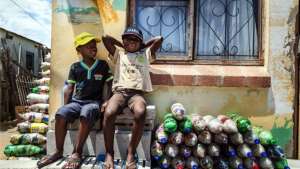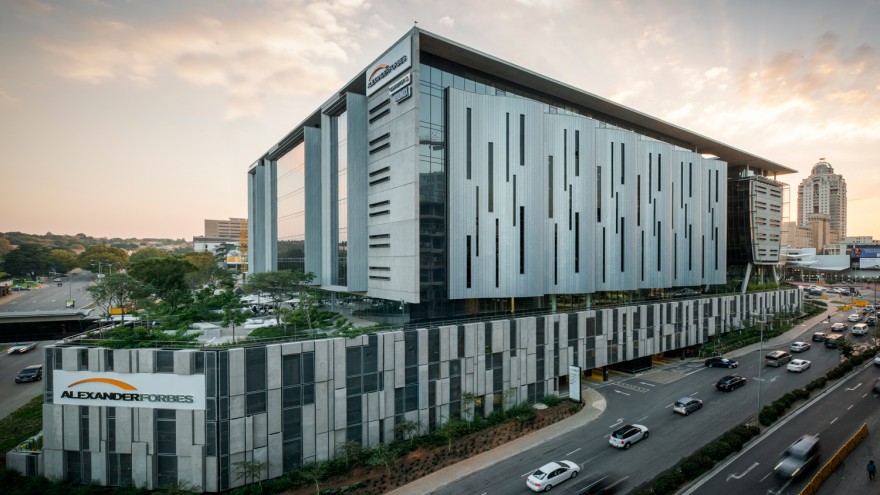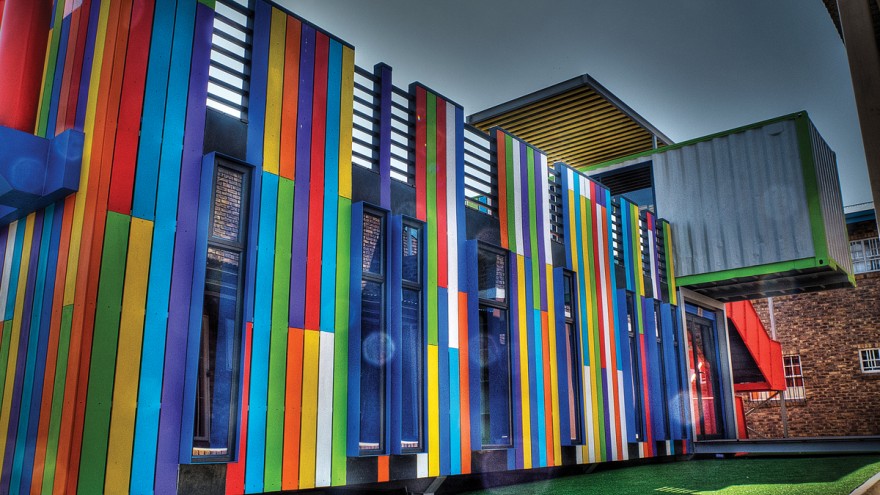From the Series
The Alexander Forbes Headquarters in Sandton, Johannesburg, has earned Paragon Architects and Paragon Interface the 2014 AfriSam-SAIA Award for Sustainable Architecture in the built category.
The forward-thinking building, which provides space for 2,500 employees, is a landmark, whose slick modern looks are a factor of its sustainability: louvres, skylights, and glazing have been intentionally used to maximise light whilst reducing heat. At street level, the building edge is softened by water-wise, indigenous greenery.
The Four Star Rated Green building has been designed to maximise efficiency in water, energy and waste systems. This translates to 70% less water used, 50% less waste generated, and only 60% percent of previous energy consumption.
It is hoped that the Alexander Forbes Headquarters will provide a beacon of inspiration, not only as a place to work, but also as a worthwhile contribution to the urban fabric of Johannesburg and human experience in the area, said Stephan Olivier, AfriSam’s CEO.
Other commended projects at the annual award ceremony on 9 October went to UNISA Phase 2 in Parow, Cape Town, designed by Michele Sandilands Architects; the Seed Library in Alexandra Township, Johannesburg, designed by Architects of Justice; Monaghan Farm near Lanseria, Gauteng, submitted by Claude Bailey Architecture & Design on behalf of Clewer Development Trust, and House Jones in Hurlingham, Johannesburg, designed by ERA Architects.
A second award, in the category of works of social importance, including research, went to Vukuzakhe by Koop Design in Durban, which examines urban development in the Municipality of eThekwini, while Collis & Associates received a commendation for research into concrete recycling in Cape Town.
Vukuzakhe acknowledges the rapid urbanisation taking place in Durban, common to most cities in the developing world. The study also understands the need for harmonisation across a series of approaches to solve the challenges that are faced, including social interaction with communities, combined with infrastructure development by local authorities.
“Vukuzakhe is a brave attempt to record, evaluate and propose systems for urban construction in South Africa. The litmus test remains for the document to be implemented and robustly challenged which, if successful, could offer realistic opportunities for urban development in South Africa,” said Olivier.
An exhibition running from 10 – 30 October at Johannesburg City Library showcases the winners and finalists. It features a unique paper and card infrastructure that echoes the concerns on display.











